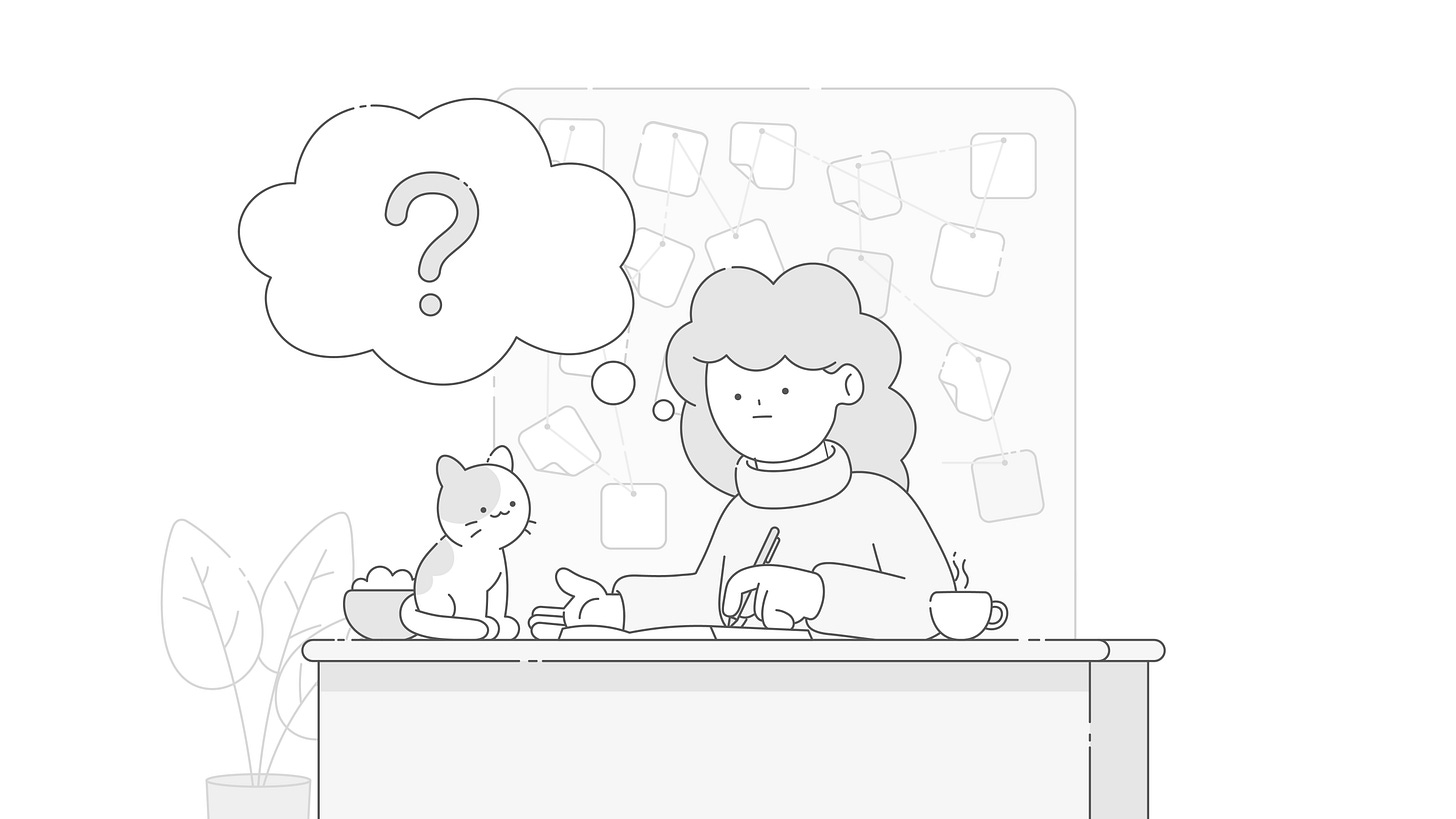There are a lot of tools in a writer’s toolkit: outlining systems, character sheets, scene templates, playlists, caffeine…
But if I had to pick just one tool to write a richer story, I would choose this super-power to x-ray into the story’s heart.
It’s a question.
A small, sharp, deceptively simple one:
Why?
“Why” Is the Key to Depth
Why is she afraid to tell the truth?
Why is he acting that way right now?
Why does this moment matter?
Why did that choice hurt so much?
Why would she do that?
Why now?
Every time you ask why, you go one layer deeper. And the deeper you go, the more human your story becomes.
Don’t Just Plot the “What”—Explore the “Why”
It’s easy to fall into a rhythm of asking “what happens next?”
That question is a great brainstorming tool for generating external events: She runs away. He confesses. The secret is revealed.
And those things move the plot forward, but not necessarily in a way that touches the reader.
What is the “why” behind them?
That’s the question that, once answered well, makes readers feel something.
Quick Example: Two Ways to Use “Why”
You can use this versatile question in two powerful ways.
1. The “Discover New Depths” Mode
Imagine you’re writing a an interaction between Dian and Isabelle. They’re arguing over who didn’t take out the trash yesterday, and you need this interaction to set up some conflict between them.
But why are they arguing? What’s the underlying cause?
Let’s explore Dian.
Suppose Dian feels like Isabelle isn’t carrying her weight around the house. Why would that be? Because Dian does everything first. Why? Because Dian has a way of doing things that is all hers, and other people aren’t doing them well enough. She’s actually very much used to being in control, and doesn’t want to let go.
But then, why is she arguing that Isabelle isn’t doing enough work? Because she wants to be acknowledged more, or because she subconsciously wants someone to stop her from taking charge all the time, to relieve her of this burden. Why? Because she’s tired of herself.
Wow.
That’s depth. That’s going from an ordinary, “You need to take out the trash more” to a much more profound, “I need someone to help me let go of control.” And such a scene will land harder and leave a much deeper impact, even (especially) if all this exists mostly on the subtext level.
2. The “Am I On the Right Path” Mode
Let’s take the same taking-out-the-trash argument and change the way we use our question.
Suppose Isabelle is a blunt, opinionated girl who is also preceptive. The trash argument takes her by surprise, and at first, we write her giving a quick apology.
Why is she apologizing, though? Is that true to her character? Being perceptive, she would probably sense something is off about the trash dynamics. She knows there’s something deeper in play. Being blunt, would she not bring that up directly?
This gives us a chance to drop a reaction that is not right for the character, and make the scene more authentic.
By double-checking every major decision or action with “why,” we can make sure our characters stay true to themselves and ring true.
That way, we don’t just move the plot in the direction we want. We move the plot in the direction that’s right for our characters.
This Works for Plot and World-Building Too
Asking “why” doesn’t just unlock character depth; it makes your plot stronger, too.
Why does this scene belong here?
Why does the antagonist believe they’re right?
Why would the reader care about this conflict?
Why would this resource be rare in my world?
Whenever you make a decision about your reason, you get the opportunity to follow it up with “why?” Who knows what new depths or new options you will discover?
A Prompt to Try
Find a key scene in your current draft. Now ask yourself:
Why is this happening?
Why is my character reacting this way?
Why does this moment matter to the characters, not just to the plot?
Write down the first answer. Then ask “why?” again. And again. Don’t be in a hurry to give answers. Take a moment to appreciate your endless options.
Somewhere around the third or fourth why, you just might hit gold.
If this post gave you a new way to sharpen your storytelling, hit the ❤️ and share it with someone who’s knee-deep in a draft and looking for clarity.
Because the best stories don’t just tell us what happened. They make us feel why it mattered.
See you next week,
Tal Kilim




Why is a great question. It gets to a character's motivation!